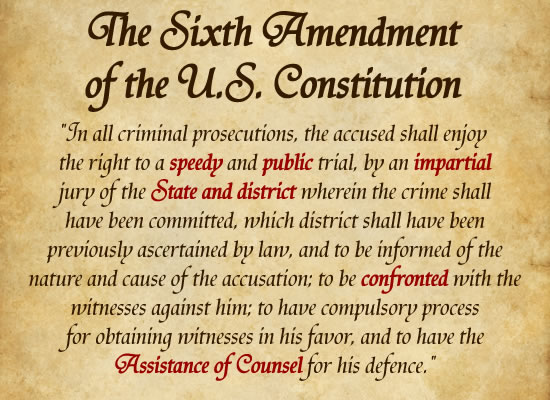People v Jordan New York Court of Appeals 40 N.Y.3d 396 (2023)
In the case of People v Jordan, the primary legal issue revolves around the Sixth Amendment’s Confrontation Clause and its application to forensic DNA evidence. Specifically, the court had to determine whether the testimony provided by a criminalist, who did not personally conduct the DNA testing, violated the defendant’s right to confront the witnesses against her.
See Also Confrontation Clause Cases
Criminal Appeals Lawyer in New York
Facts of the Case
In People v Jordan, a store in Queens was robbed, and a cellphone left behind by the robbers was found by an employee. The police swabbed the phone for DNA evidence, and analysts from the Office of the Chief Medical Examiner (OCME) created a DNA profile from the swab. This profile was run through the Combined DNA Index System (CODIS), which identified the defendant, Donna Jordan, as the source of the DNA based on a preexisting profile in the databank. Jordan was subsequently arrested and charged with second-degree robbery and petit larceny.
At trial, the prosecution called an OCME Level 4 criminalist to testify that Jordan’s DNA profile matched the profile developed from the crime scene swab. The defense objected, arguing that the criminalist did not perform the DNA testing himself, thus violating Jordan’s right to confrontation. Despite the objection, the court allowed the testimony and admitted the relevant exhibits, including a forensic biology file and a demonstrative chart explaining the DNA matches to the jury.
Court’s Holding
The Court of Appeals reversed the lower court’s decision, holding that the defendant’s rights under the Confrontation Clause were violated. The court found that the record was insufficient to establish that the proper witness testified about the creation of the DNA profiles. The criminalist’s testimony did not demonstrate that he was directly involved in the critical final stage of testing or that he conducted an independent analysis of the data. As a result, the court ordered a new trial for Donna Jordan.
Applicable Law
The Sixth Amendment’s Confrontation Clause provides that “if an out-of-court statement is testimonial in nature, it may not be introduced against the accused at trial unless the witness who made the statement is unavailable and the accused has had a prior opportunity to confront that witness” (Bullcoming v New Mexico, 564 US 647, 657 [2011]). In People v John, the court identified the point at which DNA testing processes turn from ministerial to testimonial, requiring the testifying analyst to be directly involved in the final stage of testing or to have conducted an independent analysis of the data.
Application in DNA Testing
In the realm of forensic DNA evidence, the court has sought to pinpoint when the processes involved in DNA testing turn from ministerial to testimonial. The court has clarified that the testifying criminalist need not have been involved in each step of the procedures required to generate the DNA profiles. Instead, the relevant witness is one directly involved in the critical final stage of testing, when an analyst must exercise judgment to cull the data and generate the DNA profile.
The court has held that the final stage of DNA testing, where an analyst translates the peaks and valleys of an electropherogram into a DNA profile, is considered testimonial. This stage involves human decision-making and the exercise of judgment, making it essential for the testifying analyst to have participated in or directly supervised this step, or to have conducted an independent analysis of the data.
Key Points from the Court’s Opinion
- Ministerial Tasks: Preliminary steps in DNA testing, such as extraction, quantitation, and amplification, are considered ministerial tasks that do not require the exercise of judgment.
- Critical Final Stage: The final stage of DNA testing, where an analyst generates the DNA profile by interpreting the data, is considered testimonial.
- Independent Analysis: The testifying analyst must have either participated in or directly supervised the final stage of testing or conducted an independent analysis of the data to verify the profile.
Key Terms for Better Understanding
- Sixth Amendment’s Confrontation Clause: A constitutional provision that guarantees a defendant the right to confront witnesses against them in a criminal trial.
- Forensic DNA evidence: Biological evidence used in criminal investigations to identify individuals based on their unique DNA profiles.
- Office of the Chief Medical Examiner (OCME): A government agency responsible for conducting forensic analyses, including DNA testing.
- Combined DNA Index System (CODIS): A national database that stores DNA profiles from convicted offenders, unsolved crime scene evidence, and missing persons.
Criminal Appeals Lawyer in New York
Conclusion
The case of People v Jordan highlights the complexities involved in the intersection of forensic DNA science and the Sixth Amendment’s Confrontation Clause. The court’s decision underscores the importance of ensuring that the proper witnesses testify about the creation of DNA profiles to uphold a defendant’s constitutional rights. This ruling serves as a critical reminder for prosecutors and courts to meticulously establish the involvement of testifying analysts in the final stages of DNA testing to avoid Confrontation Clause errors.
